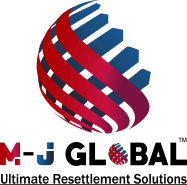EU Guidelines. The European Union is about to introduce new regulations pertaining to money laundering.
EU Guidelines. The European Union is about to introduce new regulations pertaining to money laundering.
Authorities hope that new legislation would put an end to a string of scandals involving filthy money.EU negotiators are getting close to reaching an agreement on historic new anti-money laundering legislation, which may forbid huge cash transfers and paid citizenship.
The bloc wants to put an end to a string of scandals involving filthy money, but its ideas are not without controversy.The EU’s tattered reputation for combating illicit funding might be improved by new regulations.Two EU states, Bulgaria and Croatia, are currently included on the despicable “grey list” of countries suspected of facilitating money laundering, which was created by the Financial Action Task Force (FATF), an international standards-setter.
In an attempt to make EU anti-money laundering regulations easier to follow and more potent in combating cross-border flows, the regulations will be directly applicable to all 27 members for the first time.In a series of private sessions known as a trilogue, representatives of the European Parliament, the EU Council—a body that brings together member governments—and the Commission will work out their proposed redesign early next week, on December 11 and 12.
However, Spain’s current EU Council leadership, which it is scheduled to hand over to Belgium at the end of December, is running out of time to finalize a deal.and the Commission will have a “trilogue,” or closed-door discussion, to work out their proposed redesign.However, Spain’s current EU Council leadership, which it is scheduled to hand over to Belgium at the end of December, is running out of time to finalize a deal.
Money and customs

It appears that the regulation will now apply to art dealers as well, meaning that dealers will need to conduct identity checks on their clients similar to those done by banks.This is due to the fact that the illegal artefact trade may be used to finance terrorism and criminal activity, with organizations like ISIS making money off of the looted archeological remains in Iraq and Syria.
According to an EU paper reviewed by Euronews that was prepared for a previous trilogue conference on November 14, the new regulations may affect a wide range of intermediaries that deal with high-value cultural assets, such as musical instruments, manuscripts, and archaeological artifacts.Lawmakers are also preparing to outlaw the use of cash for major transactions, which would prohibit consumers from using a stack of cash to purchase expensive items like real estate. However, there is controversy about whether to set the threshold at €10,000 or less, and some legislators worry that requiring digital payments will lead to issues with cybersecurity, privacy, and access.
Disagreement

MEPs claim that their proposals will contribute to halting the flow of illicit funds worth billions of euros through the EU economy.
The legislation was pushed through the European Parliament’s Civil Liberties Committee by politician Damien Carême, who declared in March that the measures “mark the beginning of the end for criminals, terrorists, oligarchs, art “enthusiasts” and crooked football agents.”However, there are still a lot of unresolved issues with the legislative agreement, such as Carême’s proposal to give football teams money-laundering checks.
According to a source knowledgeable on the negotiations, the talks next week are unlikely to decide which of nine candidate cities would get to house the planned new EU anti-money laundering agency, which will oversee dirty money controls at about 40 big banks.
Possession
Papp, the pressure group’s Senior Policy Officer for Illicit Financial Flows, countered that uncovering the real owners of trusts, corporations, and other unusual legal entities is as important to combating dirty money.That was upended by what Papp refers to as a “disastrous” decision made by the EU’s top court last year.
Judges stated in a startling ruling in November 2022 that disclosing business ownership information could put the extremely affluent at risk of fraud or kidnapping.
Now, negotiators must figure out how to provide that information to journalists and pressure groups from civil society that have a genuine interest in tracking down illicit funds.Papp is certain of the advantages, but that would probably take place as part of concurrent discussions on a new Anti-Money Laundering Directive, a different legislative framework that gives national governments greater latitude. Papp stated, “It isn’t just about fighting money laundering,” adding that the use of beneficial ownership data can aid in the battles against illicit logging, tax fraud, and organized crime. “This information is a piece of the puzzle in many, many fields.”
M-J Global is the best visa agent in Dubai,Oman and Qatar and best immigration consultant in Oman,Dubai and Qatar.It is the most trusted immigration agency in middle east and the business migration agent in Oman,Dubai and Qatar.M-J Global is the best registered Immigration Agent in Dubai,Oman and Qater.

